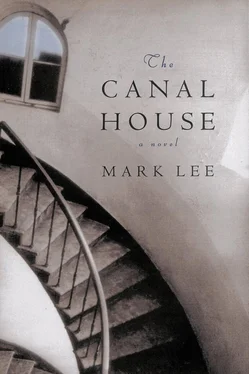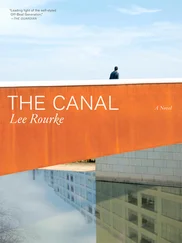I lowered my camera and said the first thing that came into my mind. “Why are your men carrying SA80 assault rifles? I heard that they jammed up during combat.”
The captain relaxed and stepped closer. He seemed pleased that I knew about the problem. “I’ve talked to everyone about those bloody things, but I can’t get replacements. It’s all politics, of course. The Ministry of Defense won’t admit it made a mistake.”
The captain’s name was Terry Jenkins. He had served with the First Gurkha Regiment in Hong Kong until it was transferred back to England. Now he was stationed in Brunei.
“We’re there to defend the sultan and his oil wells, but that doesn’t bother me. Everyone’s got to have their petrol. Makes the world go round.” Captain Jenkins watched the Australians set up a roadblock in the middle of the street. “There’s oil and natural gas in the Timor Sea. Maybe that’s why we’re really here.”
“The Indonesians are stealing everything and the militia are out of control. Someone has to come in and establish the peace.”
Jenkins plucked off a red blossom from a bougainvillea bush and twirled it between his thumb and forefinger. “That’s what my men could do. But the Australians are in charge and they want us on guard duty. It’s like using a lorry to carry a six-pack of beer. Waste of good machinery, wouldn’t you say?”
Daniel came out of the Turismo looking annoyed. I liked Jenkins and decided to keep him out of trouble. “This is my partner, Daniel McFarland. Be careful, Captain. He’s a journalist. If you say something foolish, he’s going to write it down.”
Jenkins stood a little straighter and spoke like a schoolboy giving a recitation. “The Royal Gurkha Rifles are proud to be serving in East Timor. We’ll do everything we can to restore order.”
“No, you won’t,” Daniel said. “You’re going to waste your time guarding this hotel.”
DANIEL PLACED HIS LAPTOP on the wall in the parking lot. Standing beside an armored personnel carrier, he wrote a quick article and sent it off to London with his sat phone. When he was done, I sent off digital photographs of General Bates and the kidnapped women and children screaming in the back of the truck. We were safe at the hotel, surrounded by soldiers, but I could tell that Daniel wasn’t satisfied. He ate a candy bar and drank some water, then packed up his equipment.
“Let’s go, Nicky.”
“Go where?”
“I’ve already got the general’s quote. Now I’ve got to find something real.”
We left the Turismo and headed west on a side street. It was about two o’clock in the afternoon, but it seemed much later. Smoke was smeared across the sky and the sun looked like a hazy disc of fire. With all the haze it was difficult to gauge distance and aperture. The ash particles in the air diffracted the light and the leaves on the shade trees turned a darker shade of green.
Gunshots echoed in the distance, then we heard the whoosh-bang sound of a rocket-propelled grenade. A few blocks away, an off-key car horn kept bleating loudly. We discovered a street littered with smashed computer monitors and another street covered with spilled rice. Someone had ripped up a plastic shower curtain and little shreds of neon pink were scattered over a five-block area. A pickup truck raced toward us near the ruins of the teacher’s college and Daniel pulled me into a doorway. Two Indonesian soldiers were in the truck cab and two more sat in the back guarding a goat and an exercise bike. I had the feeling that all the valuable property had been stolen weeks ago and now the Indonesians were blindly grabbing whatever remained.
Around four o’clock we returned to the harbor and accompanied an old woman on her way to the Igreja Motael church. Daniel thought that a priest or a doctor might be there—someone who could give him a quote and tell him how many people had been killed. A low white wall surrounded the church grounds and hundreds of people lay on the dirt beneath banyan trees. No one moved or spoke to us when we passed through the little gate. The people looked too exhausted to show any emotion.
More refugees were inside the church, sleeping on the floors or leaning against the walls. Some feeble light oozed through the stained-glass windows and a single candle burned near the altar. The building smelled of urine and smoke. Only two girls were crying and that was a bad sign. It meant that the other children were weak and dehydrated.
I stepped carefully around people as I walked up to a side altar. Someone had shot off the head of the Virgin Mary. The plaster chunk that contained her eyes watched me as I crouched down and tried to take a picture of the ruined statue. I didn’t want to use the flash on my camera. It felt wrong. I took a few pictures with the digital, then opened up the f-stop on the Nikon and hoped for the best.
When I turned back around I saw Daniel kneeling beside a small, elderly woman lying on the floor. I thought he was trying to interview her, but he motioned for me to help. “Give her some water, Nicky.”
“We only have two full bottles.”
“Give her my bottle. You can keep yours.”
I handed him the larger bottle and he helped the old woman drink. Some of the water dribbled down the side of her mouth.
“Got any food, Nicky?”
“Just some candy bars.”
“Give me one.”
I passed Daniel a chocolate bar. He broke it up and gave a piece to the old woman. “A lot of these people are going to die.”
“We’re not medical workers and we don’t have any supplies. Come on, Daniel. It’s getting late. Let’s get the hell out of here.”
Daniel had distributed the rest of his water and three more candy bars before I finally got him to leave. The sun was going down as we hiked back to the waterfront area. The smoke from the destruction had created a beautiful sunset of pink and scarlet. I switched to a wide angle lens and got a shot of the UN fleet outlined against the luminous sky. We met two Dutch journalists who were going to spend the night out at the airport, guarded by the Interfet troops, but Daniel didn’t want to leave the city. A two-story hotel was just across the street from the Governor’s Office. When we entered the hotel restaurant, a skinny Timorese man peered out from the kitchen.
“ Jornalista? ” he asked in Portuguese.
“ Sim. Jornalista ,” said Daniel. “ Queriamos quarto .”
The skinny man nodded and used most of his English vocabulary. “Australia dollar, good. America dollar, good. No rupiah.”
Our hotel had no electricity, no phones, no water, and no bed linen, but we paid 150 Australian dollars for two mattresses in an empty room. The moment we closed the door, I felt a little calmer. We weren’t exactly safe, but it was better than being on the street.
I downloaded my photos and sent them directly to London. While Daniel typed up articles and sent them off, I paid ten dollars to fill up our bottles from a bathtub of water in the hotel manager’s room. I dropped purification tablets into the bottles, then drank as I ate a candy bar. The taste of iodine and chocolate always reminded me of war.
As it began to get dark, more journalists straggled into the hotel. The manager sold us candles and bowls of rice mixed with bits of dried fish. I was trying to decide if a rubbery strip of tissue was actually food when the Portuguese cameraman knocked on our door. “ Há incêndio ,” he whispered. There’s a fire. We followed him up a ladder to the roof. Other journalists were already there, looking out at the city. Houses were burning in the west section of Dili. Flames glowed bright orange in the darkness and there was the faint popping sound of someone firing an automatic rifle.
Читать дальше












